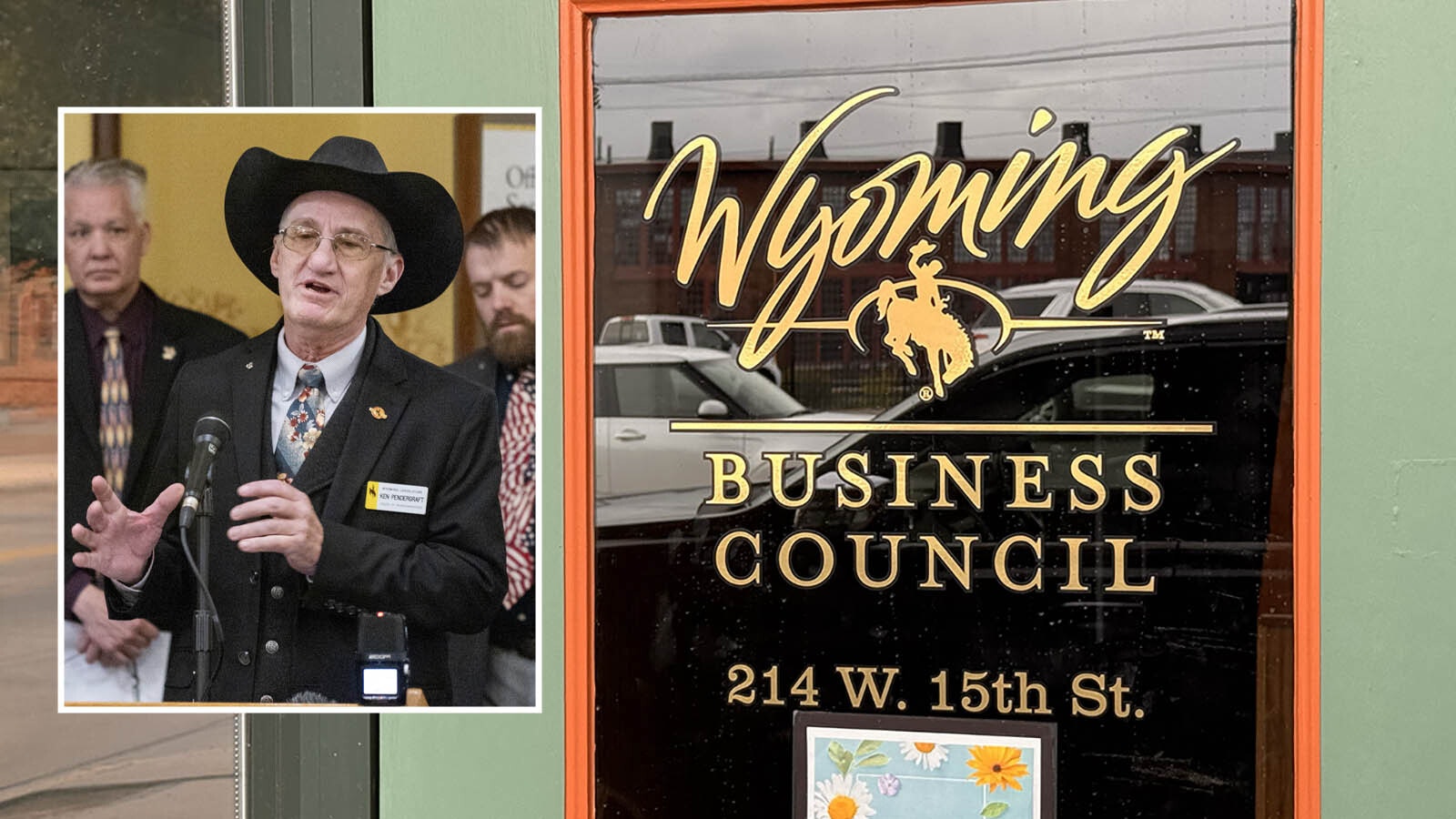A Securities and Exchange Commission proposal to allow investors to buy and sell stocks for the purpose of land conservation is being blasted by a number of Wyoming political leaders.
Wyoming Attorney General Bridget Hill and 24 other state attorneys general sent a letter Tuesday to the SEC outlining their opposition to the proposed rule, calling it illegal and an economic threat.
The SEC proposal would let investors buy into stock market companies trading on the New York Stock Exchange for the purpose of protecting nature — including public lands — and making money.
The proposal, if passed, would clear the way for the NYSE to offer this new kind of investment known as “natural asset companies,” or NACs.
According to the proposed rule, a natural asset corporation (NAC) is “a corporation whose primary purpose is to actively manage, maintain, restore (as applicable) and grow the value of natural assets and their production of ecosystem services.” Specifically, the purpose of the NAC is listed as to “protect and grow the natural assets under its management.”
These corporations will be able to “hold the rights to the ecological performance of a defined area and have the authority to manage the areas for conservation, restoration, or sustainable management.”
Backdoor Restrictions
U.S. Rep. Harriet Hageman, R-Wyoming, has been one of the most vocal opponents to the proposed SEC rule.
One of her biggest concerns is that it could shut off land from mineral production, a significant fixture of Wyoming’s economy. Some conservative lawmakers like Hageman have argued that NACs could open a backdoor into stricter management for public lands and waters.
Federal lands, including national parks and national forests, would all be fair game for NACs, as would any private lands with a conservation easement. These public lands could become off limits to mineral development and grazing if a party that bought an NAC connected to it wants that.
During a Wyoming Freedom Caucus town hall Wednesday night, Hageman warned that investments into private land specifically could prevent development on the land into perpetuity and would allow corporations to monetize the conservation of land.
“This is just one more step, this is one more effort in that regard for forced or engineered scarcity,” she said. “It is not natural. I can’t imagine any other country on the planet Earth that would do something this radical.”
Hageman describes natural asset companies “as possibly the biggest land grab in our country’s history” and believes they could be extremely destructive to the West “because that’s where most of these lands are located.”
The letter from the attorneys general says there is no legal precedent of any kind where Congress has given the authority to the SEC to set up anything like natural asset companies and that it is misinterpreting law.
Secretary of State Chuck Gray has also spoken out against the NAC proposal, calling it a “radical attempt to cripple Wyoming’s core industries.”
‘Slip It Through’
Last September, the SEC announced the proposed rule.
Only 21 days were given for the public to comment on it, which expired Oct. 25. Congress would not get a say on the NACs because they are being brought as a proposed rule by the SEC.
Hageman said comment periods for proposed rules typically run from 60 to 120 days.
“So, they were trying to slip it through,” she said.
Hageman said her office was one of the first in Congress to address the proposed rule with the SEC. The more she learns about NACs, the worse she said she finds them to be, violating numerous federal laws.
“This is one of the most frightening things I’ve seen our government attempt to do,” she said.
In December, Hageman and 31 other members of Congress sent a letter to the SEC to ask how the natural asset companies would operate and demand the agency extend the time allotted for comments.
The comment period was extended to Jan. 18.
Hageman also has proposed an amendment to a spending bill that would defund the SEC’s ability to roll out the proposed rule.
Although she expects the rule to be challenged in the courts, Hageman is hopeful there will be enough negative pushback to the proposal that it will be rescinded.
“We have really been banging the drum back here and I think we’ve made some people pretty doggone nervous as to the validity of this,” she said.
She also believes President Joe Biden’s administration relies on the courts and their own administrative rules to push through the “vast majority” of their initiatives.
“They know Congress would never approve anything this radical,” she said.
What’s The Effect?
Hageman believes NACs are a more aggressive evolution of environmental, social and corporate governance (ESG) scores.
House Majority Floor Leader state Rep. Chip Neiman, R-Hulett, said America’s future and ability to survive is at stake with the fate of the NAC proposal.
“We have nations that are definitely working diligently to destroy this country that can now be provided property with the opportunity to tie up massive swaths of land across our United States and can be utilized to completely halt our ability to grow food,” he said.
Supporters of the rule say it would give investors interested in preserving nature a place to put their money. They also argue it could create job opportunities and sources of wealth for local communities that incentivize conservation instead of mineral extraction.
The New York Stock Exchange also proposes that NACs would hold the rights to the ecological performance produced by natural or working areas such as natural protected reserves or large scale farmland, and would have the authority to manage the areas for conservation, restoration or sustainable management. Some have projected trillions of dollars worth of deficit for potential economic development they could block.
“This is one of the most radical, radical things I’ve seen, and it is both so far outside the authority of the New York Stock Exchange as well as the SEC,” Hageman said.
Rep. John Bear, R-Gillette, said he sees the proposal as a divide between private landowners and Wall Street investors and that instead of the common narrative of getting money out of politics, he believes there’s also a need to get the politics out of money.
But the latter argument raises many constitutional questions about how far the government can go to restrict private people from investing in causes they believe in.
Foreign Involvement
NACs would also license the land management rights to sovereign nations or private landowners.
“Governments outside the borders of the United States would be able to weaken our country and economy, that’s a scary scary thing,” Bear said.
Rep. Jon Conrad, R-Mountain View, said the foreign ownership aspect of NACs troubles him deeply and he is actively lobbying members of the minerals industry to comment on the proposal.
"We are aggressively pursuing input to ensure that is stopped," he said during a Wyoming Caucus press conference on Thursday.
Hageman believes that when an economy is destroyed, people stop caring about the environment all together and focus on their everyday survival.
“They really are destroying the golden goose that laid the golden egg by destroying our environment by loving it to death and preventing us from being able to access it and use it,” Hageman said.
While her argument does hold merit when considering third-world and developing countries’ approach to managing the environment, many conservationists have asserted that protecting the environment is a method of survival in itself.
Leo Wolfson can be reached at leo@cowboystatedaily.com.





